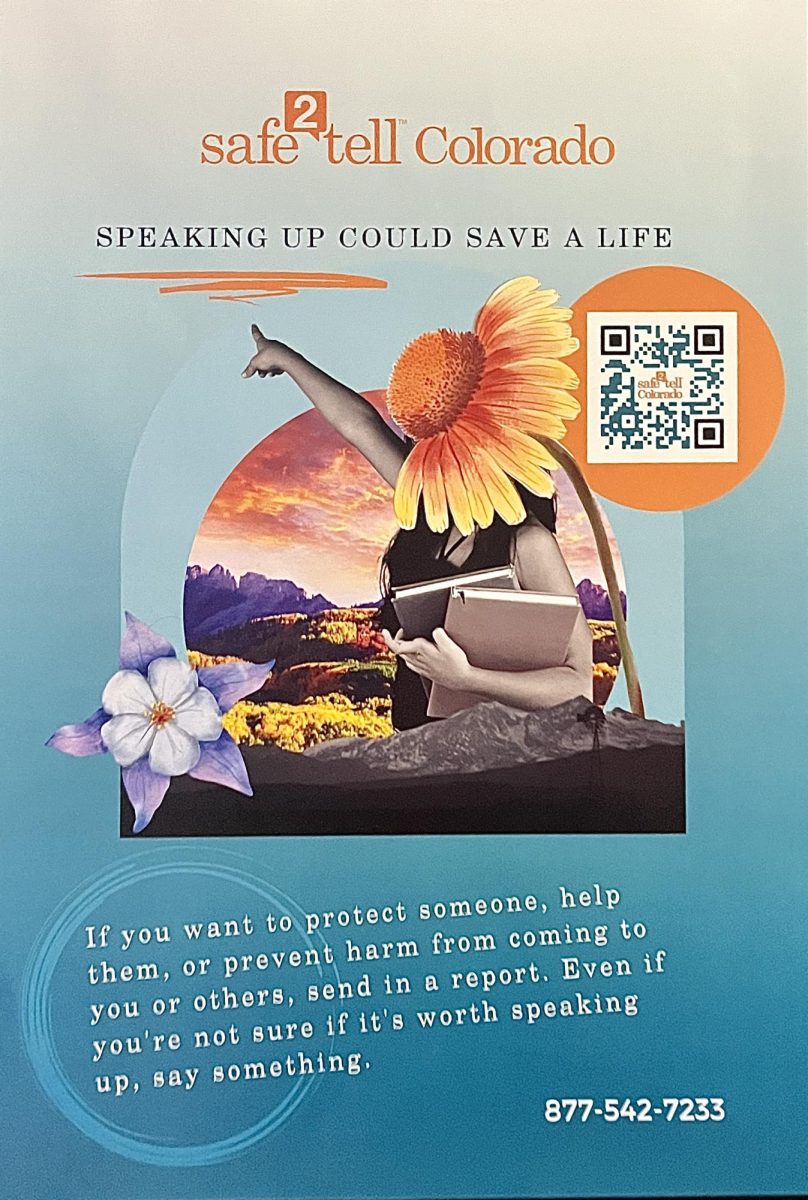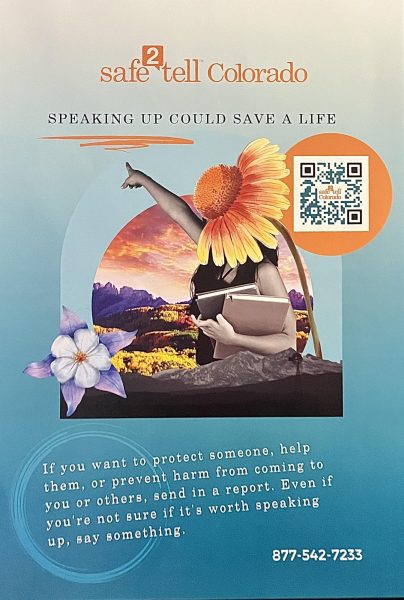September Suicide Prevention Month

Photo of the National Suicide Prevention Lifeline Logo and Suicide Prevention Awareness Ribbon
Trigger Warning: discussion of suicide and suicidal ideation
September, National Suicide Prevention month, sheds light on the leading cause of death for Coloradans aged 10 to 24 according to the Colorado Sun. From 2016 to 2019 teen suicides in Colorado increased by 58% according to Colorado Public Radio and Dr. Linda Genen of the United Health Foundation. These statistics reveal that a generally taboo subject, sucicide and suicidal ideation, need to be addressed.
Mellisa Siegle L.P.C., of Conundrum Counseling, finds it crucial to destigmatize discussions about mental health.
“Having a month that is about bringing [suicide] to the public consciousness and learning how to talk about it, is super important,” Siegle said.
Especially this month, it is important that you check in the mental health of your friends and loved-ones. Josh Berro, one of the AHS guidance counselours, described the signs of someone experiencing suicidal ideation (considering the idea of suicide).
“Extreme changes in sleep and eating patterns, [being] withdrawn from social life, sudden mood swings, and asking questions like ‘what would life be like without me,” Berro said.
Amanda Smith Fierstein M.S.W., a Hope Center Outreach and Education Coordinator & School Clinician, advises that we “Stop, Look, and Listen,” for behavioral risk factors in people potentially undergoing suicidal thoughts, especially if there are new stressors in their lives.
If you are noticing a combination of these signs in someone, it is important that you do your best to aid and be there for them by starting the conversation. By starting a difficult conversation, you are demonstrating empathy, compassion, and enough care to notice when friends are acting in an off way. Fostering a sense of connection most often has a positive impact on those experiencing suicidal ideation.
“[Those experiencing thoughts of suicide] feel like it’s their last option; they feel like they’ve lost hope, and they don’t see another way out. When someone reaches that point, it is really important for their friends and loved ones to be able to reach out,” Fierstein said.
Although you may take it upon yourself to support friends, it is important that people going through thoughts of suicide receive professional help, as the average citizen is not equpped to handle such crises.
“If you think your friend is suicidal, you need to encourage your friend to see a counselor,” Berro said.
In order to work towards a society in which the subject of mental health carries no stigma, empathy and understanding must shape conversations around topics such as suicide. It is important, for example, to understand possible causes of suicidal ideation.
“Most people that experience clinical depression have [had] some sort of suicidal ideation,” Siegle said.
The desire to commit suicide is fleeting.
“Completing [a] suicide is a permanent solution to a temporary problem,” Seigle added. “People that have attempted suicide and survived almost universally say that the moment they took that step, they really regretted it, they wanted to live, they wanted to see what was next and what could get better.”

Ava is a senior at AHS. This is their third year writing for The Skier Scribbler. Ava is eager to contribute to the newspaper and is passionate about writing,...


























